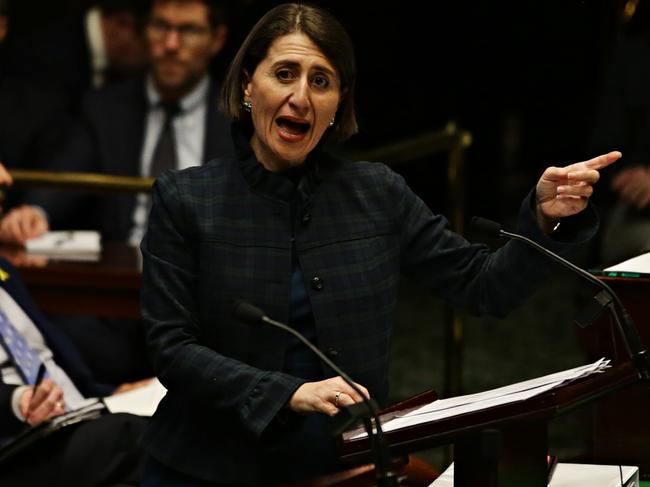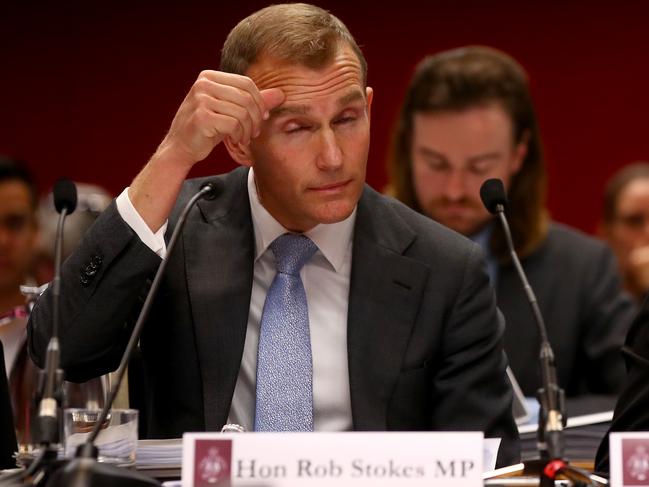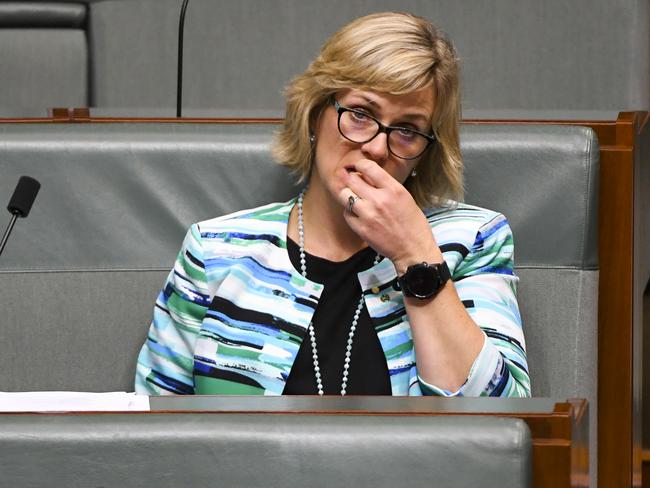Stoke’s pandering to greenies a kick in guts for struggling communities
Planning Minister Rob Stokes should be called to account for overseeing the laws which permitted the IPC to skittle a new mine and kill 1100 desperately needed jobs, writes Piers Akerman.
Opinion
Don't miss out on the headlines from Opinion. Followed categories will be added to My News.
Premier Gladys Berejiklian’s ramshackle government has again escaped serious scrutiny because of media attention on international events.
Donald Trump and Boris Johnson are far sexier subjects for journalists chasing clickbait.
This smokescreen has provided cover for Berejiklian’s disastrous handling of the abortion bill — why was it suddenly a matter of urgency for a Liberal-National Party government to give priority to a no-account leftist independent’s Bill — and for the recent failure to secure jobs and growth for the strugglers in the Bylong Valley who saw a new mine snatched from them by the Independent Planning Commission.
Planning Minister Rob Stokes — a former education minister (how literacy and numeracy have fallen), and former environment minister (loved by the Green luvvies) — should be called to account for overseeing the laws which permitted the IPC to skittle the project and kill 1100 desperately needed jobs, at a time when the natural climate cycle has hit much of the State with a crippling drought.

But Mr Stokes panders to his insular peninsula electorate, just as the NIMBY eco-activist Zali Steggall plays to eco-freaks in her federal seat.
The IPC, which claims it can only act within the law and is not activist (cue laughter) received 3192 comments, including 2530 objections coming as standard-form letters from Lane Cove Coal and Gas Watch.
Those form letters should have been dumped, or used to fuel an electricity generator.
The Commission cited “long-lasting environmental” impacts from burning the coal in South Korea for rejecting the mine, which would have created 650 construction jobs and 450 jobs for the Central West over its 30-year life.
Surely South Korea is the party responsible for any effects on the environment from its power industry.
Mr Stokes, trying to walk both sides of the street, said: “Major resource projects in NSW aren’t and shouldn’t be refused on the basis of where they sell their coal.”
But he didn’t pull the IPC into line.
If he thinks the IPC is so critical to his planning system, why then does he choose to bypass it for his own “important” projects?

Most major projects are declared “state significant development” (SSD). These projects are subjected to a lengthy assessment process.
However, the NSW government can declare, with virtually no recourse for appeal, any project a “state significant infrastructure” (SSI) project. This allows the NSW government to bypass planning scrutiny and “rush” it through the system.
Most SSI projects are the government’s own, such as WestConnex or the Sydney CBD light rail — and we know how well they’ve gone.
Who is directly responsible for this chaotic situation? The Minister for Planning, Mr Stokes. He is the approval authority for SSI applications. The IPC plays no role in the determination or assessment of SSI projects.
SSI applications are quickly assessed by the Department of Planning, effectively considering the same matters considered in State Significant Development (SSD) assessment, including consultation with the community and government agencies.
Yet these projects bypass the IPC completely, even if they are highly controversial and generate significant community backlash.
Successive Planning Ministers, including Mr Stokes, approved the Parramatta Light Rail project in just nine months, Sydney Light Rail in seven months, the Sydney Football Stadium Stage 1 in six months and WestConnex M4 in five months.

Most, if not all of the projects they so speedily approved, are running behind schedule and massive cost overruns can be counted on. The IPC’s record in dealing with SSD mining projects, which have the capacity to provide real jobs here and improve the lives of millions overseas, is deplorable. In recent years, planning assessment time frames for mining projects have more than doubled. Since 2015, average assessment times are over twice as long, almost 1000 days. This doesn’t sound like a state on the move. It doesn’t even sound like a state that’s open for business.
When Prime Minister Scott Morrison was in the US opening Anthony Pratt’s recycling plant last week, Mr Pratt told how Australian power prices had helped him decide to invest his billions in the US. As a result, a tiny Ohio hamlet has jobs and is now known for more than being hometown of the first man to walk on the moon. Mr Pratt could as easily have cited Australian red tape and planning rules as reasons for his decision.
As those struggling to hang on up in the Bylong region and in other marginal rural areas wonder how they’ll get by, they should ask how is it that a demonstrable incompetent from a leafy urban electorate permits laws which give high-earning bureaucrats the right to decide they know best how to counter possible emissions of life-giving carbon dioxide in South Korea — and make decisions which kill Australian communities.
Answers please, Mr Stokes, Ms Berejiklian.
